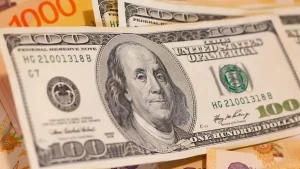International Trade

It is defined as international or global trade, movement with the goods and services across different countries and markets. It is performed using currency and is subject to additional regulations establishing exchange participants and the governments of their home countries. When making international trade, the countries involved benefit mutually to better position their products, and enter markets extranjeros.1
The economies of foreign trade are called open economies. This process is mainly external opening began in the second half of the twentieth century and dramatically in the 1990s, when he joined the Latin American economies in Eastern Europe and East Asia. Growing interrelationship between what happens in international markets and what happens in the economy of a country.
Benefits Of International Trade
International trade allows greater mobility of factors of production between countries, leaving as a result the following advantages:
1. Each country specializes in those products which have higher efficiency allowing you to better utilize their productive resources and raise the living standards of their workers.
2. Prices tend to be more stable.
3. It enables a country amount those goods whose domestic production is not enough and are not produced.
4. Makes it possible to offer products that exceed consumption to other countries, in other markets. (Exports)
5. Balance between scarcity and excess.
6. The movements of entry and exit of goods give way to the balance in the international market.
7. Through the balance of payments is reported that types of international transactions have been carried out residents of a nation in a given period.
International Trade Barriers
To correct the imbalances of payments, governments will try, of course, to encourage exports. But for this, in some cases, they will be tempted to use harmful measures for other countries, so they can cause undesirable reactions. In addition, there is always the temptation to establish barriers to imports.
There are several types of barriers to imports.
Quotas are quantitative barriers: the government sets a limit on the amount of product giving import licenses to a limited extent.
Tariffs are tax barriers: the government sets a customs duty causing a rise in domestic sales price of the imported product so that its demand will fall.
Administrative barriers are very diverse, ranging from complex customs procedures that slow and expensive goods movements to sophisticated health standards and quality, being different from the rest of the world, prevent the sale inside the products that do not they have been manufactured specifically for the country.
International agreements to break down these barriers will come to nothing if there is a clear and strong deregulatory will. The imagination of political leaders can always discover new methods «not prohibited» to hinder imports. The most recent and sophisticated the barrier are devised so far concerted self as agreed between the United States and Japan under which the latter country voluntarily limits the amount of products delivered to American restrictions.
Models Of International Trade
• Free trade
• Protectionism: studies the barriers set against free international trade.
• Tariff
• Tariff Policy
• Contingent • Dumping
• Trade war
• No duty barriers
• Safeguarding economic
• infant industry argument
• Beggar my Neighbour
Regulation Of International Trade
Traditionally trade was regulated through bilateral agreements between two countries. Under the belief in mercantilism for many centuries countries imposed high tariffs and other severe restrictions on international trade. In the nineteenth century, especially in Britain, belief in free trade gained momentum, and this perspective has come to dominate the political calculus among Western countries until now. Since the end of World War II, several multilateral treaties have attempted to create a global structure of trade regulation. Most of the communist and socialist countries believe in autarky, which means the complete absence of international trade and the satisfaction of economic needs through self-reliance. Despite these beliefs, all countries are involved in some kind of international trade, as it is very difficult for one country meet all their financial needs. The need to regulate international trade stems from the unfair practices of some multinational companies to be dominant in the industry, you are practices are: Dumping: Dumping refers to lower the price of a product below cost of production in order to corner the market. Price discrimination: Refers to raise the selling prices of a product for a certain socioeconomic sector and reduce it for other socioeconomic sectors with lower purchasing power in order to sell more expensive to the upper classes and smaller prices classes medium and low. Several instruments have been used to manipulate international trade. These include tariff safeguards, export and import quotas and non-tariff barriers. An essential component of international trade is the international transport of goods. The terms and conditions thereof are regulated by Incoterms.
Incoterms






